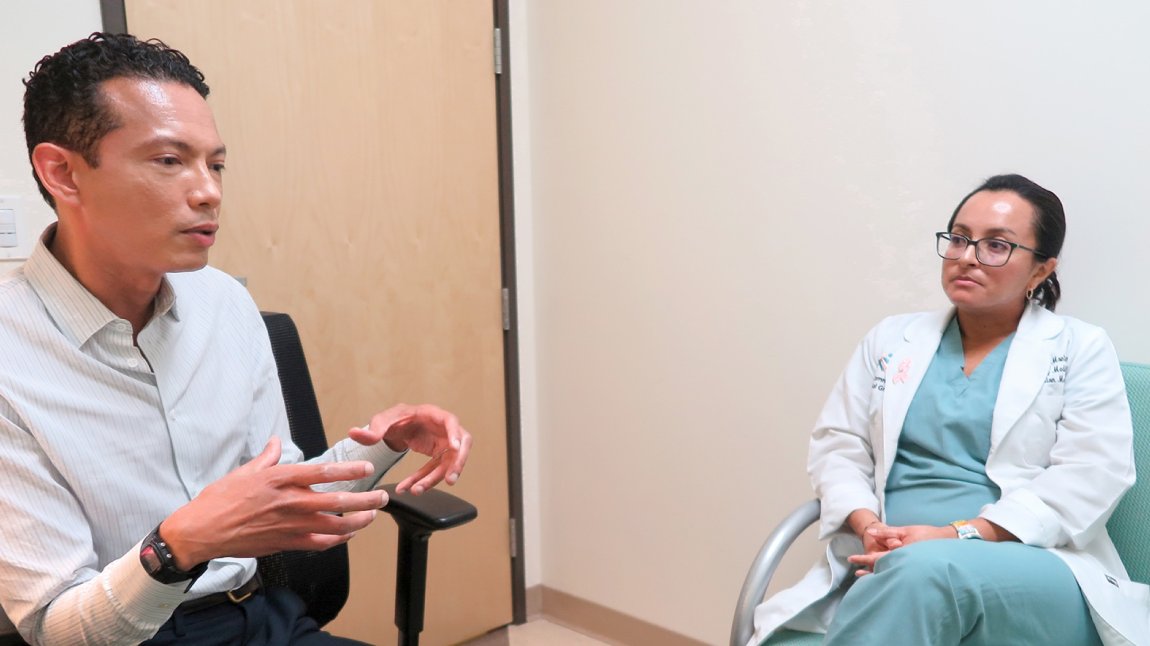Treating the cause, not just the symptom. That’s the approach behind a combined grant of $1 million from Cedars-Sinai and $500,000 from the California Community Foundation and a doctor-driven effort to make MLKCH patients not only better, but well.
Together, Dr. Yulsi Fernandez Montero, a primary care provider and addiction medicine specialist at the MLK Community Medical Group, and Dr. PK Fonsworth, an addiction psychiatrist who works at both the hospital and medical group, are leading an effort to make mental health and substance abuse treatment part of routine patient care.
They sat down together recently to discuss the mental health connection to physical healing, how the patient experience will change as the result of integrating the two, and why South LA’s history makes a comprehensive approach to healthcare so necessary.
